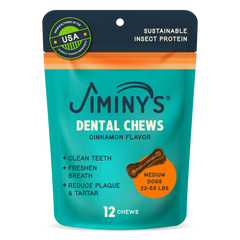Northeast Region: Protecting Your Pup from Lyme Disease and Summer Hazards
Summer in the Northeast brings beautiful hiking trails, beach days, and unfortunately, a surge in tick populations. As a dog owner in this region, you need to be especially vigilant about certain seasonal risks.
Lyme Disease Prevention: Your Top Priority
The Northeast has the highest concentration of Lyme disease cases in the country, making tick prevention essential for your canine companion:
-
Daily tick checks: After any outdoor activity, thoroughly check your dog's entire body, paying special attention to ears, between toes, under collars, armpits, and tail areas.
-
Year-round tick prevention: Consult your veterinarian about the best tick preventatives - options include topical treatments, oral medications, and tick collars.
-
Yard maintenance: Keep grass short, remove leaf litter, and consider creating a 3-foot barrier of wood chips or gravel between your yard and wooded areas to reduce tick migration.
-
Recognize symptoms early: Watch for lameness, swollen joints, fever, reduced appetite, and lethargy - all potential signs of Lyme disease requiring immediate veterinary attention.
Other Northeast Summer Concerns
-
Heat and humidity: The Northeast's summer humidity can make heat harder for dogs to handle. Ensure constant access to shade and fresh water, and avoid walking on hot pavement.
-
Harmful algal blooms: Before allowing your dog to swim in lakes or ponds, check for advisories about blue-green algae, which can be fatal if ingested.
-
Allergies: Ragweed and other summer allergens are common in the region, causing itchy skin and discomfort. Regular bathing can help remove allergens from your pet's coat. Some allergies are triggered by food. Try switching to a novel protein like Jiminy's Good Grub if your dog is itching or licking excessively.
-
Mosquitoes: Besides being annoying, they can transmit heartworm disease. Ensure your dog is on heartworm prevention medication.
-
Wildlife encounters: While hiking, keep dogs leashed to avoid encounters with porcupines, skunks, or aggressive wildlife protecting their young.
Remember that prevention is always easier than treatment. Regular veterinary check-ups during summer months can catch any issues before they become serious problems.





